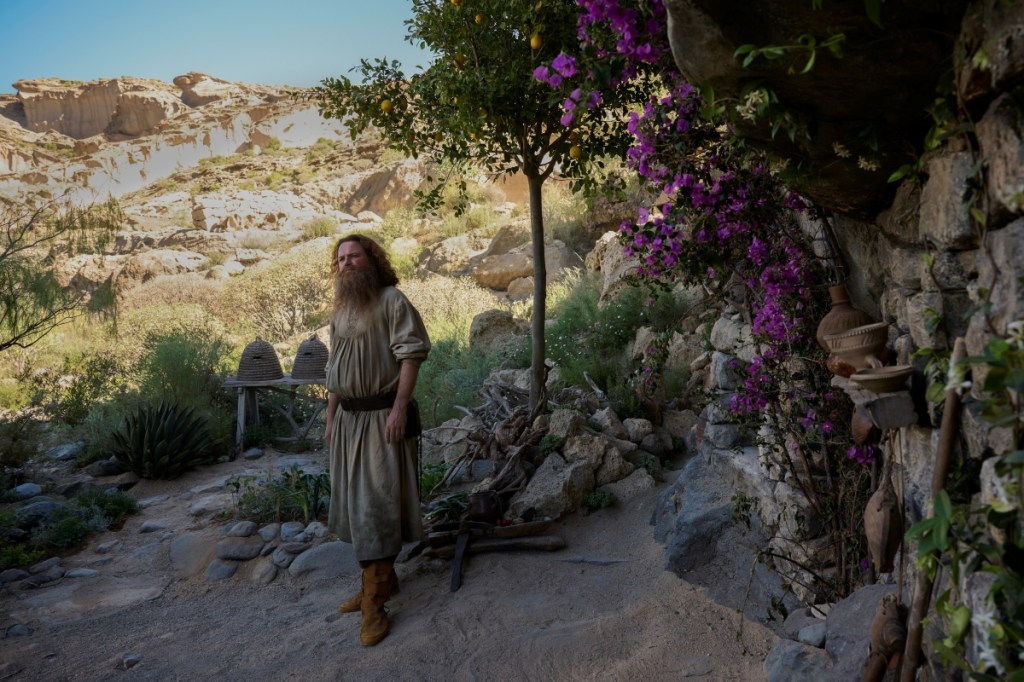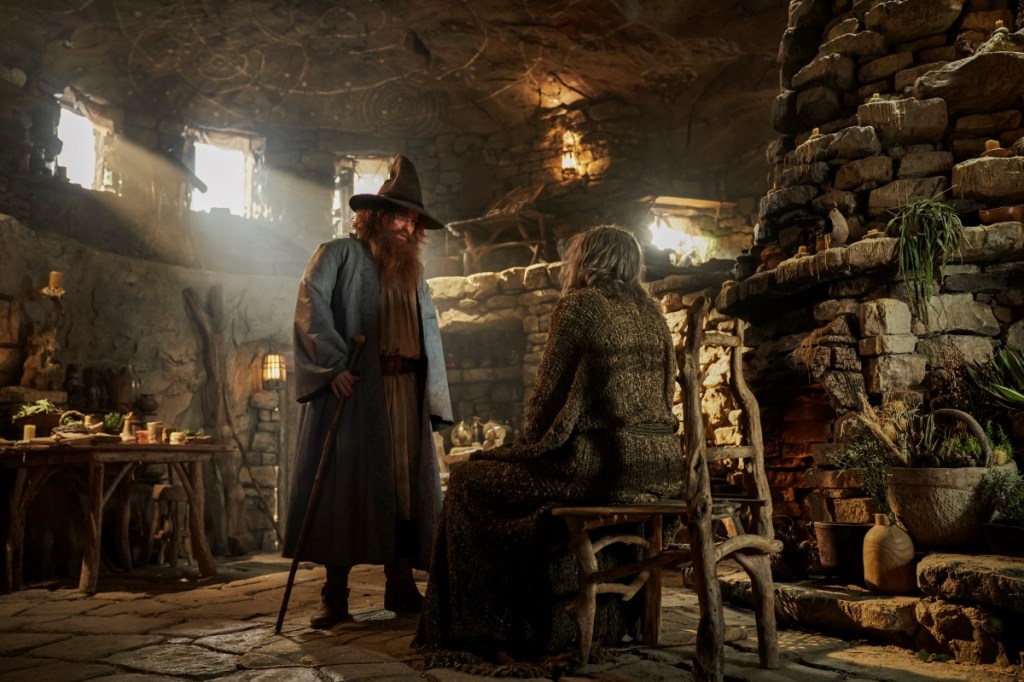First of all, as with our previous articles on The Lord of the Rings: The Rings of Power, this primer will be relatively spoiler-free. However, if you don’t want to know anything about the latest episode, “Eldest,” then you may want to return to this article after your viewing.
Prime Video has made no secret that the character of Tom Bombadil appears in Season 2 of Rings of Power – and if you follow the show on social media, you’re probably aware that he is introduced in this week’s episode. But you may be wondering: Who is Tom Bombadil?
The birth of Bombadil
Tom Bombadil appeared early in J.R.R. Tolkien’s The Fellowship of the Ring and remains one of Tolkien’s most enigmatic characters. Some readers found him annoying while others loved this jolly figure who spoke in rhymes and burst into song. As Tolkien described him, Bombadil had “a blue coat and a long brown beard; his eyes blue and bright, and his fine face was red as an apple, but creased into a hundred wrinkles of laughter.”
In the book, Bombadil rescues the hobbits from an angry tree, Old Man Willow. (The scene is echoed in the new ROP episode.) He then brings them to the cozy home he shares with his wife, Goldberry, a “daughter of the river.”
Tolkien actually wrote about the character before The Lord of the Rings had even been conceived, in a poem called “The Adventures of Tom Bombadil.” He later admitted that he added the character to Fellowship simply because Bombadil already existed, and he wanted to include him in Frodo’s story even if the fit was a bit awkward.
Peter Jackson left the character out of his film version of The Fellowship of the Ring for this very reason, convinced that the character was inessential and would bog down the 3-hour movie.

An enigma wrapped in a mystery
Tom Bombadil’s exact nature is mysterious. In Tolkien’s mythology, it seems that he is the first living being to have inhabited Arda (a.k.a. Earth), the created world. We should not equate Bombadil with Adam, however, because Tom Bombadil is not a human being.
When the hobbit Frodo asks, “Who is Tom Bombadil?” his wife simply says, “He is,” and “He is, as you have seen him.” That sounds like an echo of God’s response when Moses asks his name in the Book of Exodus: “I am Who Am,” the Lord replies. Bombadil is not a stand-in for the Creator, however.
Goldberry explains to the hobbits that her husband is “the Master of wood, water, and hill.” The title “Master” here is interesting. Frodo mistakenly assumes that means Tom Bombadil owns or controls the Forest, but Goldberry clarifies that her husband is a master because he “knows no fear.”
Knowing for its own sake
In a letter, Tolkien explained what the character of Tom Bombadil meant to him:
“I do not mean him to be an allegory – or I should not have given him so particular, individual, and ridiculous a name – but ‘allegory’ is the only mode of exhibiting certain functions: he is then an ‘allegory,’ or an exemplar, a particular embodying of pure (real) natural science: the spirit that desires knowledge of other things, their history and nature, because they are ‘other’ and wholly independent of the enquiring mind, and wholly unconcerned with ‘doing’ anything with the knowledge: Zoology and Botany, not Cattle-Breeding or Agriculture.”

Master of wisdom and memory
Tolkien’s explanation helps us understand that Tom Bombadil is not a “master” because he controls or exploits nature; rather, it is his profound knowledge, memory, and wisdom that make him “Master” of this realm. It’s clear why such a character would appeal to Tolkien, the scholar who devoted much of his life to studying obscure and dead languages. The idea also sprang from his Christian identity: Bombadil’s stance in front of reality echoes St. Augustine who said, “I inquire in order to know something, not to think it.”
In Fellowship of the Ring, Tom Bombadil tells the hobbits “many remarkable stories,” but he does not offer “comfortable lore.” His stories about the Forest reveal that the world is angry at those who would hack and destroy trees for their own use. Bombadil also speaks about history, about the myriad kingdoms that have gloriously risen only to tragically fall; he can even speak about the dawn of creation. His words have authority because “Tom was here before river and the trees.”
It’s understandable then why Tolkien insisted on including Tom Bombadil in his great epic of Middle-earth. Far from being inconsequential to the narrative, Bombadil represents the goodness that Frodo and his companions are desperately seeking to defend, while the enemy hates that goodness and wants to exploit it and gain power over it.
Who is Tom Bombadil? He is the spirit of living memory and of the wisdom that comes when reality is loved and embraced for its own sake. In short, Tom Bombadil is … Tom Bombadil. And yes, Tolkien would say that he is still present in this age, hiding from us perhaps, with most people sadly unaware of his existence.




